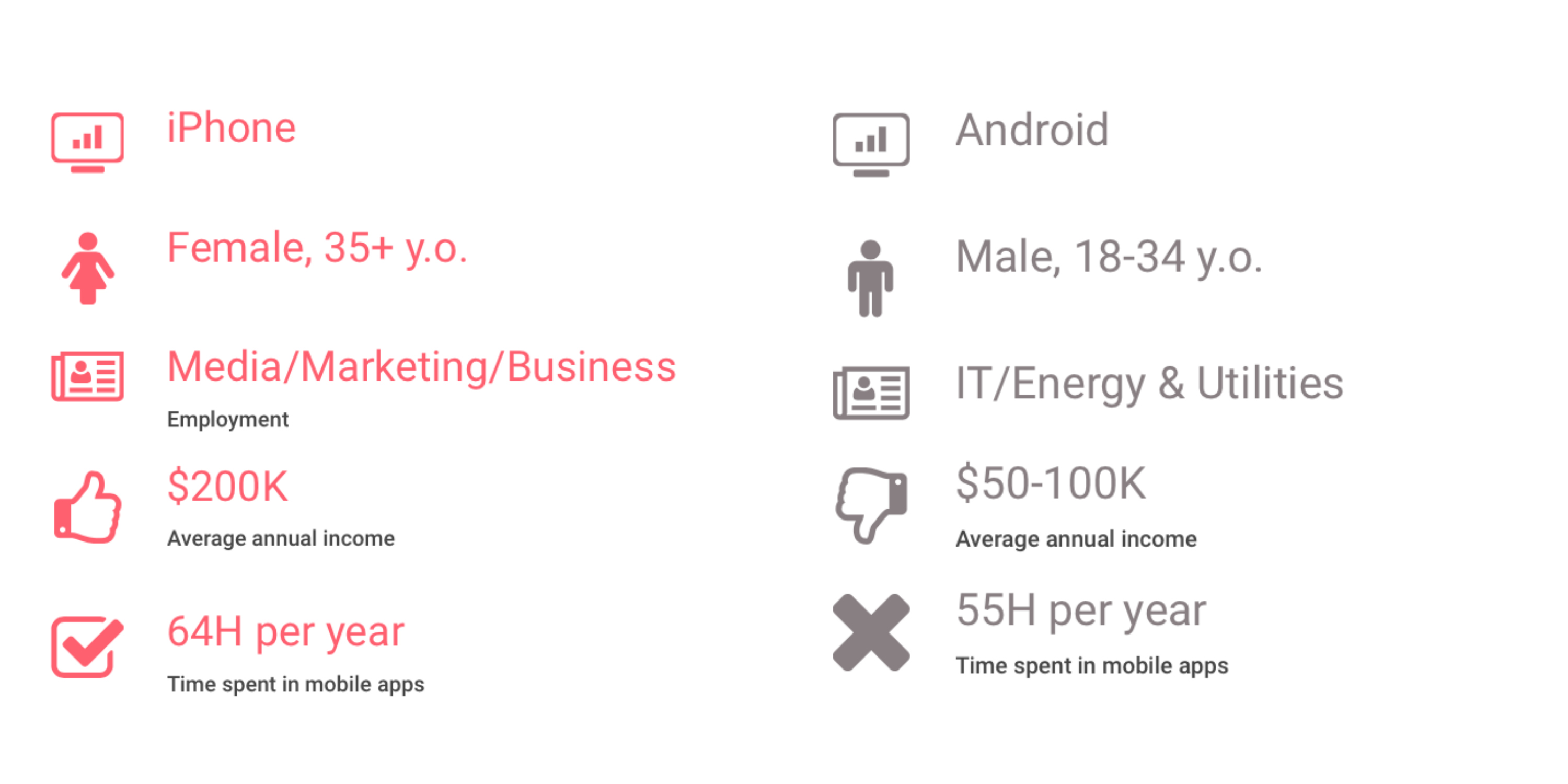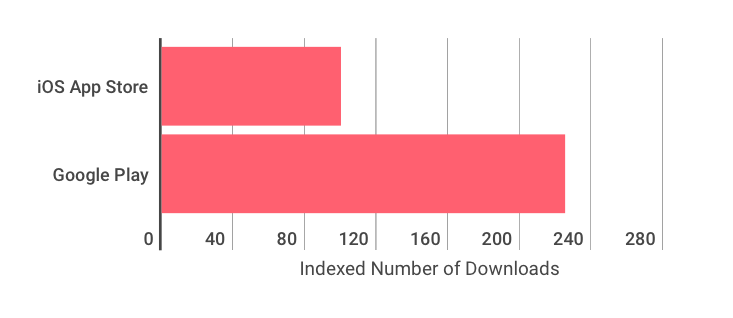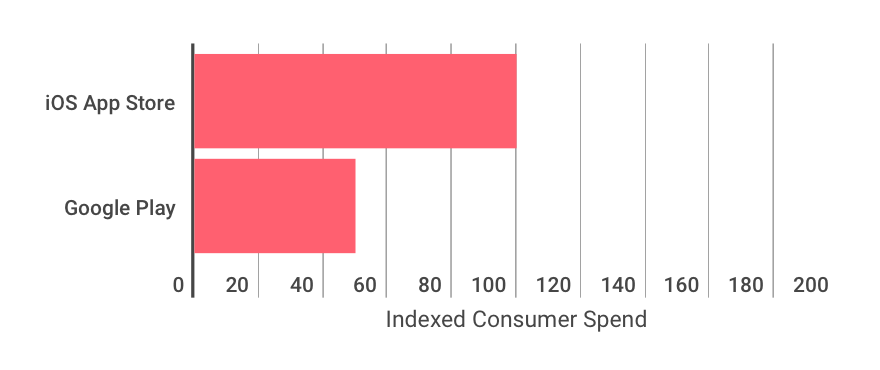IOS VS ANDROID DEVELOPMENT
IOS VS ANDROID DEVELOPMENT
IOS vs Android development. Many companies struggle to decide what platform they should use to develop their app. From a financial standpoint, the iOS platform consistently earns more revenue than Android but there is more to the story, and we need to dig deeper to understand what is better iOS or Android.
Demographics
Demographics tells us a lot about Android and iOS users. This is where we need to start the investigation. Android currently holds the largest global platform share. However, this market share comes mostly from developing countries and lower income areas.
On the other hand, iOS users are typically younger, with a higher level of education, greater engagement and earn more money, so they spend more per app.

Revenue Models
Another factor one needs to consider when deciding on the platform is where the majority of your audience is. Android has a greater percentage of ad-supported apps while the iOS development platform relies predominantly on purchases.
Even though iOS makes you pay for apps, they still earn more revenue with that model. In the first quarter of 2017 iOS made 70% more than Android app developers:

Development Speed
How fast you can get your app to the market is always a primary concern when building the app. In general, it can take 2-3 times longer for Android app development vs iOS app development. Why? It has to do with the system release cycles and something known as Android fragmentation.
Simply put, Android fragmentation is about a huge number of devices within this operation system that come in all shapes and sizes as well as with huge differences in performance level and screen sizes. Another aspect of Android fragmentation is that there are lots of active versions at the same time. To build an app that is compatible to all of these devices is quite a challenging task. Thus, it's crucial to consider timeframes before you outsource app development.
Release Cycles
Because Android is locked down by carriers and OEM’s, it makes their releases more difficult, and adoption of the latest OS versions is usually slower than with iOS. For example, today over 80% of all iOS users have adopted the latest version of iOS 10. Nougat for Android was released in August 2016, and currently, a little over 7% of all users have adopted it.
For developers, there is a benefit to being able to focus on supporting the newest versions of an operating system. With that, you can reasonably expect to reach quite a broad audience. If only about 10% of the users have adopted it, then the developer has to support older devices, do more testing and this way increase the development cycle time.
With iOS higher adoption rates developers can stop supporting older versions and devices sooner, reduce testing, incorporate newer API’s and reduce their development cycle times.
App Costs
To understand how much does it cost to make an app for your particular project, you need to decide first on the platform. The longer it takes to develop an app, the higher the cost. This combined with the fact that Android apps drive lower revenues compared to iOS, the latter appears to be cheaper to build and will likely bring in more revenue.
Numbers vs. Engagement

When deliberating about which platform to develop an app for, a developer has to take into consideration whether it is more important to have higher numbers of users or fewer users that engage more frequently. This part will hugely depend on how you'll decide to monetize an app. Android has a wider audience in general, whereas iOS has more engaged users.
Choosing Your App development Platform: iOS of Android
By now you may have guessed that in general, it is more lucrative and easier to start developing apps for iOS because they earn more, you can get your app to market faster, and the cost of mobile app development is lower. Another important reason for starting out using the iOS platform is that when you are developing a new app, there is a significant learning curve to understand what is working and what's not. If you have to do that across two platforms or even for Android development platform alone, which is much more challenging because of the fragmentation, it potentially makes app development non-profitable.
If your company is a start-up and your capital is limited, then iOS is the best place to begin because not only is it cheaper iOS also brings influencers and PR with it. Chances are, you'll get much more clicks for your app built on iOS.
If your audience is mostly located in emerging markets, then it makes sense to start with Android since they tend to visit app stores more often.
When is the time to move onto another platform? Growth is the primary reason for moving to a new segment of the audience. Once you have exhausted or hit a critical mass on one platform, then you can start targeting the region of the second platform. That will most likely increase your total number of users.
Conclusion
There are many aspects to consider when choosing a platform for app development, but from a financial standpoint as well as a time perspective iOS is a better choice. If your company has been established in app development for a long time and can navigate the more complicated Android OS, you probably afford longer development times and testing. So, in any case, go for it!



Comments
Post a Comment